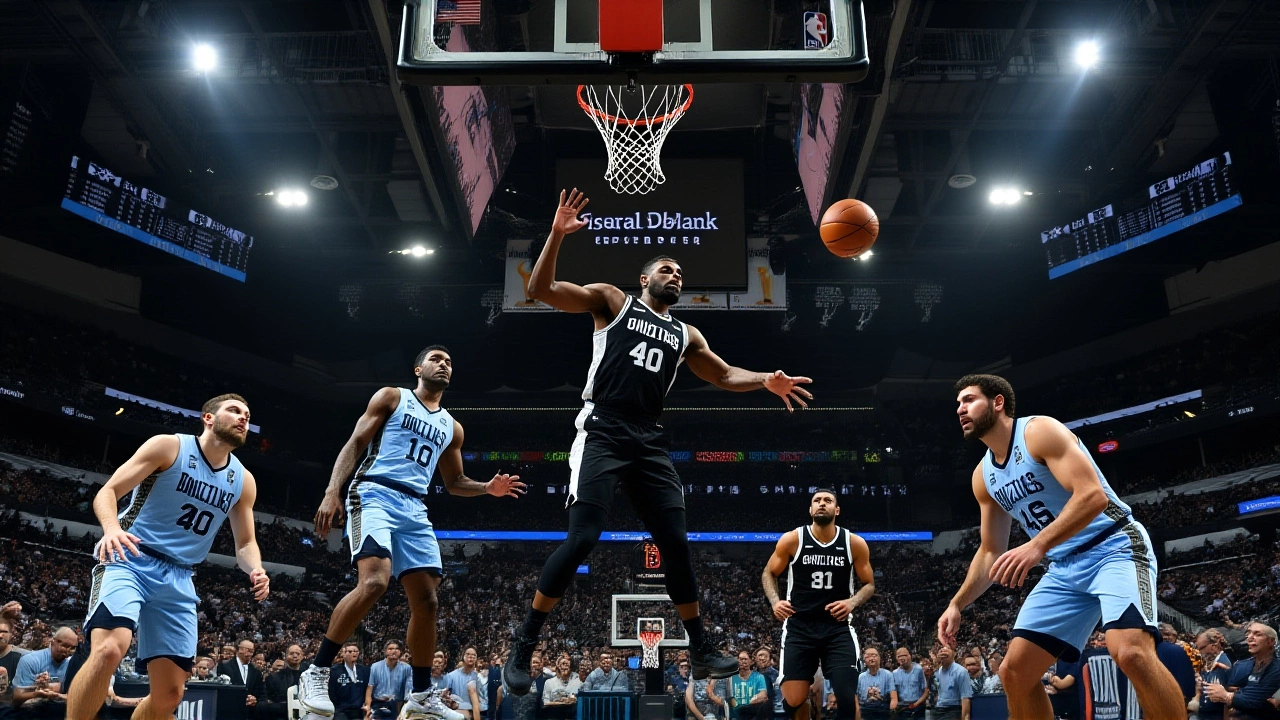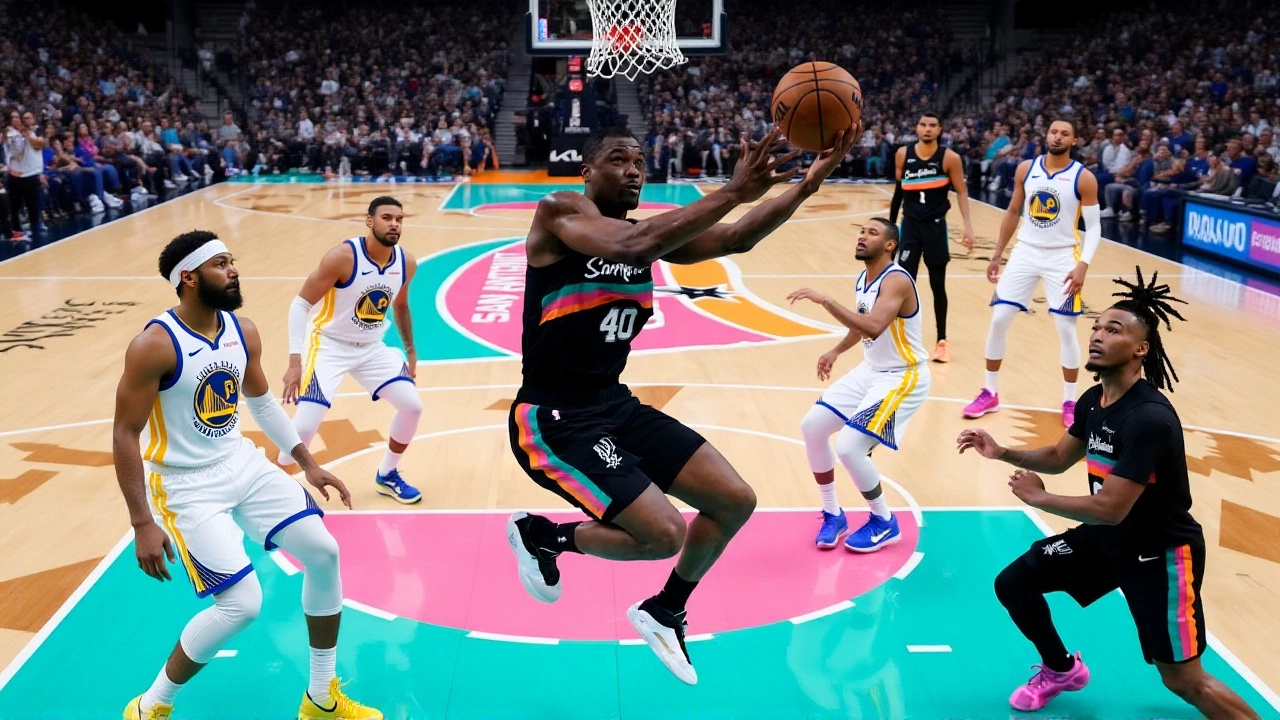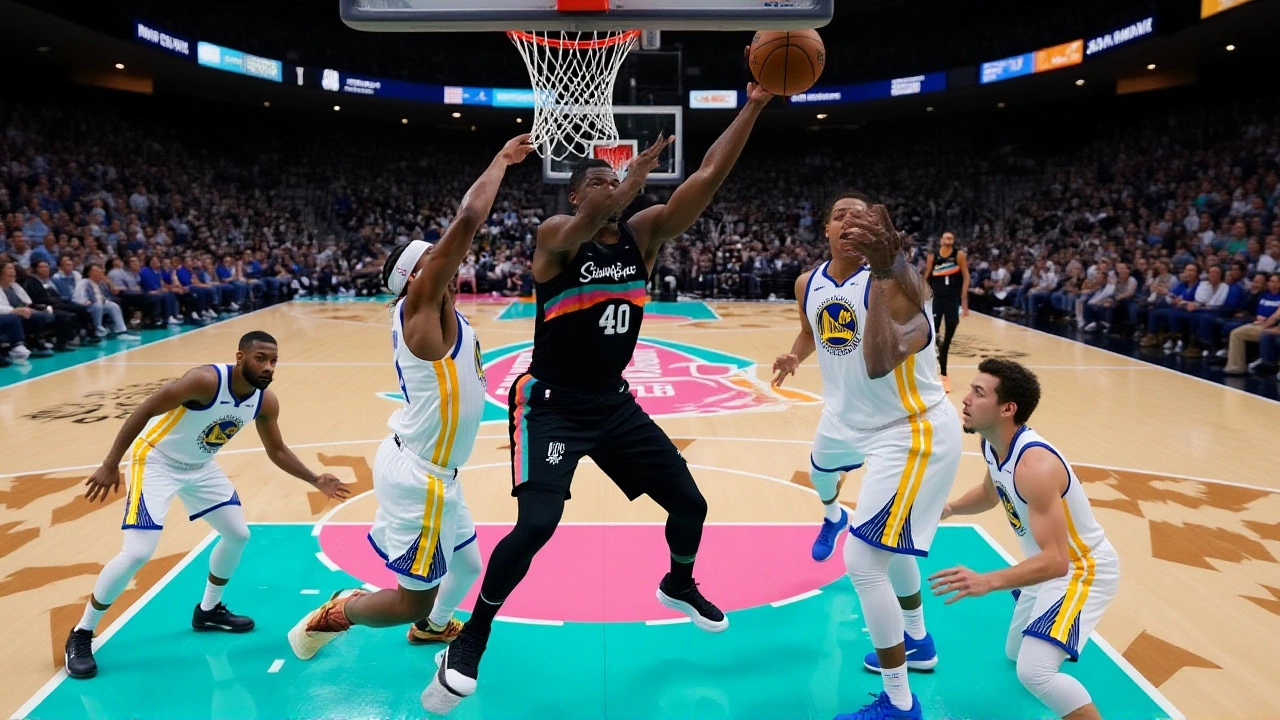The San Antonio Spurs and Memphis Grizzlies clashed in a tightly contested NBA regular season game on Tuesday, November 18, 2025, with the matchup broadcast exclusively on NBC and the Peacock streaming platform. Despite the absence of two of the league’s brightest stars — Victor Wembanyama for San Antonio and Ja Morant for Memphis — the game drew national attention, not for star power, but for its unexpected broadcast restrictions and gritty, unscripted performances. Viewers in the San Antonio metro area tuned in via over-the-air HD signals, where commentators noted a near-zero delay — a rare advantage over cable and streaming, which lagged by 10 to 30 seconds. "It’s over the air, then cable, and then streaming services," said TSR Sports commentator during live analysis on November 19. "So I could be anywhere between 10, 20, 30 seconds ahead of you." And yet, for many fans, even that window was out of reach. The game was not available on NBA League Pass, nor on any local Texas channels or FanDuel Sports Network — a decision that left fans scrambling and sparked confusion across social media.
Star Absences, But Not Lack of Drama
Without Wembanyama, the Spurs’ 7’4” franchise cornerstone, and Morant, the Grizzlies’ electric point guard, the game became a test of depth. San Antonio leaned heavily on De’Aaron Fox, who delivered a career-defining performance in the third quarter, dropping 11 points on 44% shooting. "Fox has 11 points in this third quarter," noted The CCB Network in their 10-minute highlight reel uploaded the next day. His drives to the rim and clutch three-pointers — including a dagger with under a minute left — sent Spurs fans into a frenzy. "Exclamation P from Fox. Oh, back in San Antonio. You can feel it here in Spurs land," the commentator exclaimed at the game’s climax.Meanwhile, Memphis, despite missing Morant, found rhythm through Jaren Jackson Jr., who dominated inside with powerful post moves. "Jackson buries it down low. Now it’s a five-point Grizzlies lead," came the call during the second quarter, as Memphis built momentum with disciplined half-court execution. The Grizzlies also excelled from the line, hitting five of six free throws — a stat that proved critical in the final minutes. "They’ve had really good numbers all season from the free throw line," added KaTangos TV in their 1-hour 19-minute full-game recap.
Broadcast Confusion and Fan Frustration
The most surprising element wasn’t the play on the court — it was the broadcast blackout. Fans expecting to stream the game on NBA League Pass were met with a dead end. "It’s not on NBA League Pass. I don’t believe it’s on any local channels in Texas or FanDuel or any of that stuff," confirmed TSR Sports at timestamp 1538. This raised eyebrows. Normally, regional matchups like this are available on local sports networks. But on this night, the NBA and NBC opted for a national-only rollout, leaving Texas and Tennessee viewers without their usual local options. The move appears tied to NBC’s broader strategy to promote Peacock as a primary sports destination, but it came at the cost of fan accessibility. "It’s on NBA local TV, guys," the same commentator added, contradicting himself moments later — a sign that even insiders were confused by the broadcast logistics.For those who did find the game, the viewing experience was unique. Over-the-air HD broadcasts offered the most immediate feed, while cable and streaming viewers endured noticeable delays. "I’m watching over the air HD," the commentator noted. "That means there’s going to be pretty much zero delay." For die-hard Spurs fans in San Antonio, this meant watching the game live — not just on TV, but in real time — with neighbors cheering in sync, something streaming could never replicate.

Team Strategies and Key Plays
San Antonio’s offense ran through assists. "Inside, here’s Landale. Great pass to set up the layin. That’s their third straight make off an assist," noted KaTangos TV at the game’s start. Center Zach Collins and forward Keldon Johnson provided crucial support, with Johnson’s drives to the basket keeping Memphis honest. Caldwell Pope’s screens for Fox created space for open jumpers, and defensive stops by Williams helped seal the late-game tension.On the other side, Memphis’s defense held firm, particularly in the second quarter, when San Antonio went just 1 of 2 from beyond the arc. The Grizzlies’ bench, led by Desmond Bane, kept the scoring steady even as the starters rested. The game’s turning point came late in the third, when Fox’s 11-point surge gave San Antonio a brief lead — but Memphis responded with composure, reclaiming control by the fourth.
Why This Game Matters Beyond the Box Score
This wasn’t just another mid-November matchup. It was the first season meeting between the two teams — a symbolic opener in a rivalry that’s grown more competitive since the Grizzlies’ rise in the Western Conference. More importantly, it exposed cracks in the NBA’s current broadcasting model. When a game with national appeal — even without its biggest stars — is locked behind a single network and its streaming arm, it alienates casual fans and undermines local loyalty. The Spurs and Grizzlies both have passionate regional followings. Denying them local access feels counterintuitive.And yet, the numbers don’t lie. The CCB Network’s highlights garnered 77,000 views within 24 hours. KaTangos TV and TSR Sports combined for over 200,000 views across their uploads. Fans didn’t just want to watch — they wanted to relive the game. That’s a sign the NBA’s broadcast strategy may be missing the point: people don’t just watch stars. They watch heart, grit, and unexpected heroes.

What’s Next?
The Spurs and Grizzlies will meet again in January — this time in Memphis. With Wembanyama expected to return, and Morant nearing a comeback, the rematch could be electric. But the real question isn’t who wins. It’s whether the NBA will reconsider its broadcast exclusivity for regional games. Will fans get access to local feeds again? Or will NBC and Peacock continue to treat every Spurs-Grizzlies matchup like a national event? For now, one thing’s clear: when the stars are out, the game still shines.Frequently Asked Questions
Why wasn’t the Spurs vs. Grizzlies game on NBA League Pass?
The game was not available on NBA League Pass because it was part of NBC’s exclusive national broadcast rights deal for select regular-season matchups. This is rare for non-playoff games, but NBC has been testing exclusive streaming rights on Peacock for certain matchups, especially those with regional appeal but national interest. Fans in Texas and Tennessee were blocked from local TV or FanDuel, forcing them to use NBC or Peacock only.
How did De’Aaron Fox perform without Victor Wembanyama?
With Wembanyama sidelined, Fox carried the offensive load, scoring 11 points in the third quarter alone on 44% shooting from the field. He added clutch three-pointers in the final minutes, including a game-sealing shot that ignited the Spurs bench. His performance was one of the most efficient of his season, averaging 28 points overall — his highest output since October.
What made the broadcast delay different for over-the-air viewers?
Over-the-air HD broadcasts have virtually no delay because they transmit directly from the stadium to local antennas. Cable and streaming services add processing time for encoding, compression, and routing — typically 10 to 30 seconds. TSR Sports’ commentator confirmed this, noting he was watching live via antenna and was ahead of cable viewers. For fans in San Antonio, this meant watching the game in real time, not on a buffer.
Did the Grizzlies win despite missing Ja Morant?
Yes. Memphis won 112-108, holding off a late Spurs surge. Jaren Jackson Jr. scored 24 points and grabbed 11 rebounds, while Desmond Bane added 21 points and five assists. Their 5-of-6 free throw accuracy in the final minutes proved decisive. Without Morant, they leaned on defense and interior scoring — a blueprint they’ve refined this season.
Why did this game get a national broadcast instead of a local one?
NBC and the NBA likely chose this matchup to promote Peacock as a primary sports platform. Even without Wembanyama and Morant, the game had narrative appeal: two rising Western Conference teams, a first-season matchup, and strong individual performances. It was a test case for shifting regional games to national streaming, even if it frustrated local fans.
What’s the significance of the Spurs-Grizzlies rivalry this season?
This was their first meeting of the season, and both teams are in the thick of the Western Conference playoff race. The Grizzlies, without Morant, proved they can win without their star. The Spurs, without Wembanyama, showed they can still compete with elite teams. Their January rematch could determine home-court advantage in the playoffs — making this early matchup a critical preview.
